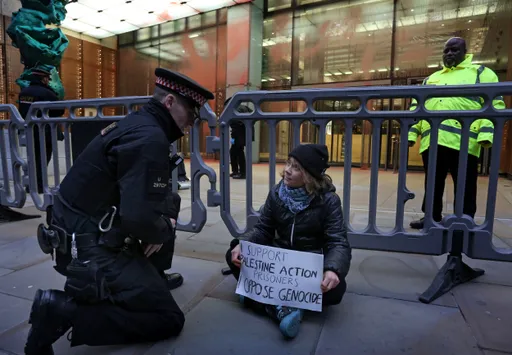Born in 1954, Nardane Kuscu is a former elementary school teacher who changed her life around when she reached retirement. She and her family now operate a farm in the Kandira district of Turkey’s northwestern Kocaeli province.
“I was born in Cukurova, in Adana Ceyhan Kosreli village,” she says, speaking of her roots in southern Turkey. “I was born on a farm run by a woman. That may explain my obsession with women and farming.”
According to Kuscu, Kosreli is a tribe from the Bayat arm of Oghuz Turks; she says there are many Kosreli villages and Bayat towns all over Turkey. “I come from roots close to nature, from a people living within nature,” she stresses.
Kuscu became a school teacher in 1972, and got married two years later to a military man. She remained in Istanbul, teaching in less advantaged areas. She says she relished being around children and exchanging ideas with them.
“These days I feel like schoolchildren are being so mistreated,” she says. “They don’t get the breaks between classes at school, when school should be a place of socialisation as well as learning, for example,” she explains. “And if they do go out to the courtyard to play,” she sighs, “it’s concrete poured over earth so that their clothes don’t get dirty.”
“If it’s not that then it’s all about what school they will get into when they graduate middle school,” she complains, saying that the egos of parents and teachers are getting the best of them.
Asked what she was like as a child, Kuscu says she remembers picking out the seeds from a watermelon she would bring her father at the age of six: “He would tell me I was spoiling him,” she laughs. “And I would store the seeds, thinking I would plant them later on. I started putting away seeds that early.”
Nardane Kuscu now has 1,200 seeds in her possession, having collected them over decades. She says she doesn’t trust hybrid seeds. “A horse and a donkey may have a mule together,” she comments. “But the mule can’t give birth to either a horse or a donkey.”
The seeds in her seed bank have been predominantly collected by the efforts of other women, Kuscu says. “90% of it is their work,” she muses. “Sometimes I go over to them to pick up the seeds, sometimes they trust me with them and send them over themselves. It’s as if you’re judging a suitable marriage candidate for your daughter,” she laughs.
Kuscu has been planting some of the seeds in the 120 decares-big family farm. This was not where one would have normally found her. In 2002, she received training to be able to help children and their families, and was also one of the co-founders of Nar Egitim Danismanlik (Nar Education Consultancy). While working there, she founded a family business, Narkoy, with her husband Ahmet, son Ozan, daughter-in-law Ebru and daughter Beste.
Narkoy is the family farm. It serves as a corporate retreat and also as an educational opportunity for students to visit and stay for research purposes. Kuscu says that they are protecting natural habitats by keeping their carbon footprint as small as possible, carrying out their workshops in the open air is one way of doing this.
“We have activities such as planting activities, cheese and bread workshops, and nature walking here,” Kuscu tells of daily life on the farm.
“Nature is the biggest teacher of all,” Kuscu says reverentially. “In order for us to do sustainable farming, we use heirloom seeds,” she adds.
Narkoy also collaborates with children and their caregivers, as well as university students. “Women’s equality is a big issue for me, too,” Kuscu points out. “And I am proud any time the children and young adults leave here a bit more knowledgeable about the environment. I want them all to start their own seed banks.”
Kuscu says that ultimately they are working towards a good future for future generations. “Clean food, clean water, clean breath of air,” she tells TRT World. “What you do may be your ‘work clothes’ but in the end, it’s what you leave behind,” she concludes.
























